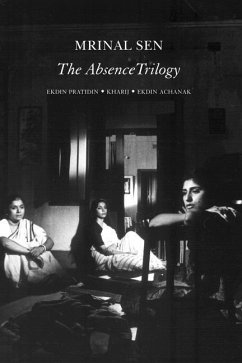An insightful presentation of Indian film scripts that explore alienation and loss in middle-class life. Renowned Indian filmmaker Mrinal Sen, celebrated for his pioneering contributions to parallel cinema, offers sensitive portrayals of the middle-class psyche in his films Ekdin Pratidin, Kharij, and Ekdin Achanak. Regarded among his finest works, these films-though not strictly a trilogy, having been produced years apart-each explores the theme of absence: the sudden disappearance of an individual, the resulting exposure of underlying values, and the profound changes in relationships and attitudes among those left behind. This volume features shot-by-shot reconstructions (as in post-production film scripts) of all three films, alongside a comprehensive introductory essay from Somnath Zutshi. It is richly illustrated with black-and-white reproductions of scenes from the films, providing a visual complement to the textual analysis. This edition brings Sen's cinematic artistry and thematic depth to an international audience, offering an insightful exploration of his work.
Hinweis: Dieser Artikel kann nur an eine deutsche Lieferadresse ausgeliefert werden.
Hinweis: Dieser Artikel kann nur an eine deutsche Lieferadresse ausgeliefert werden.








